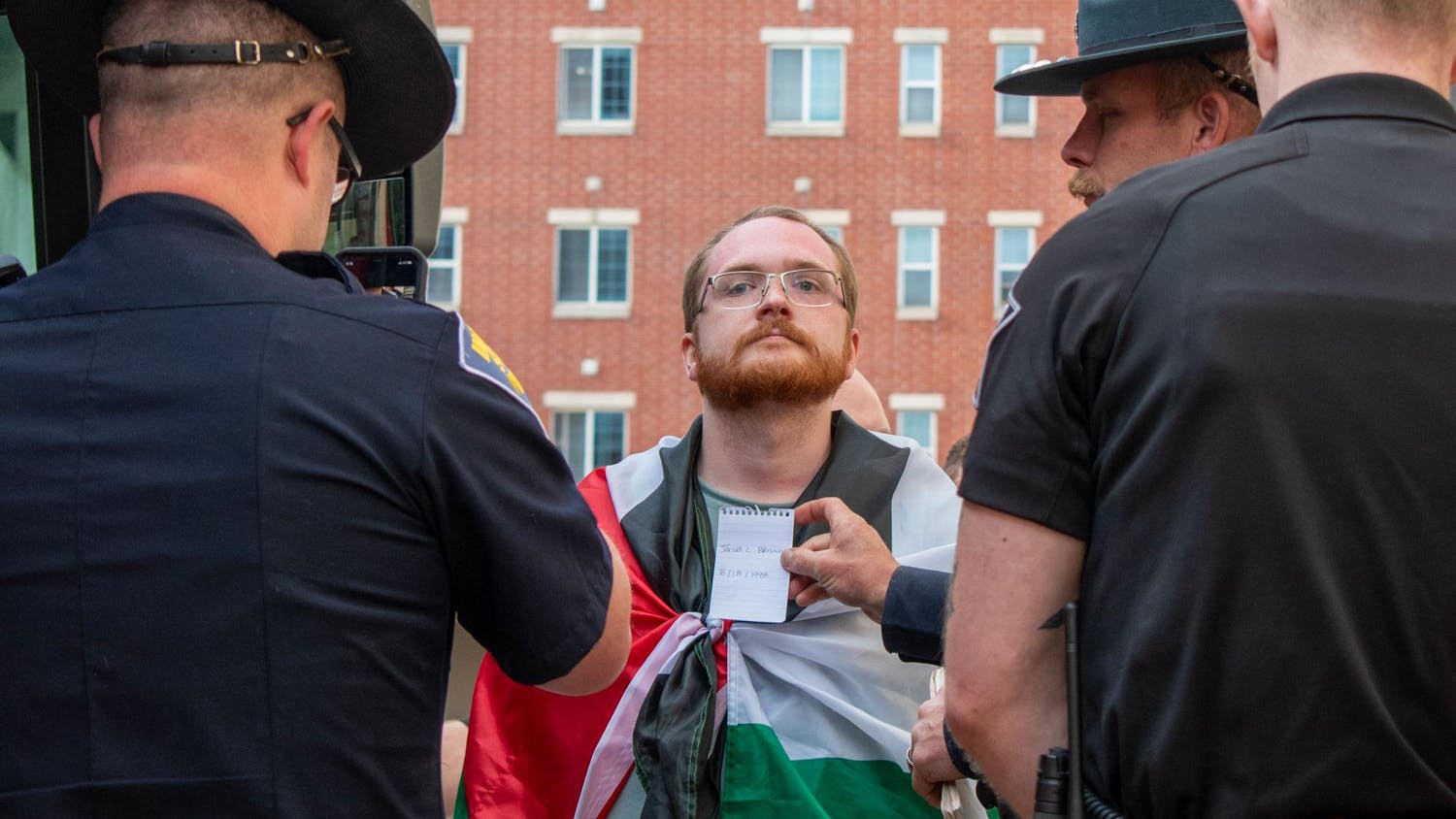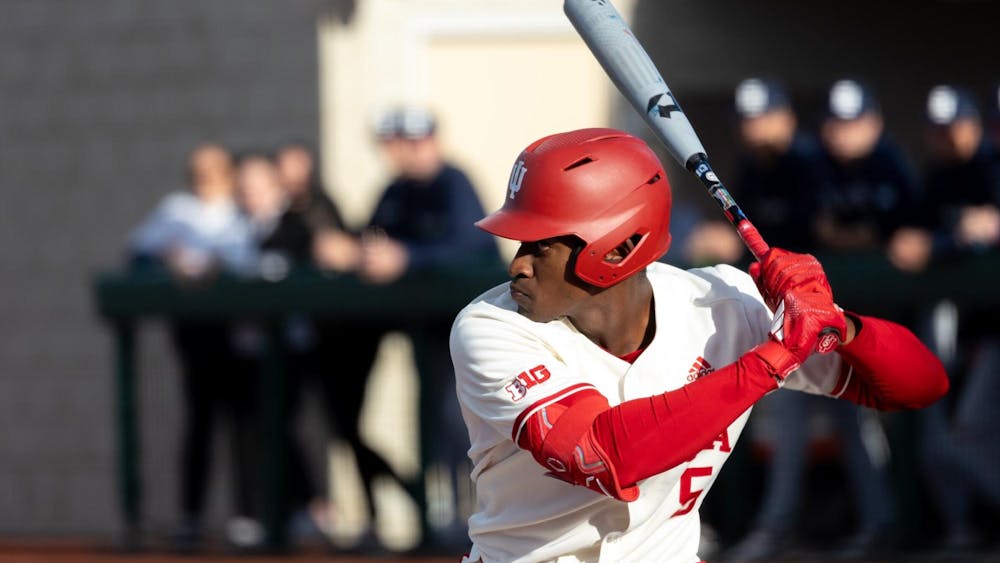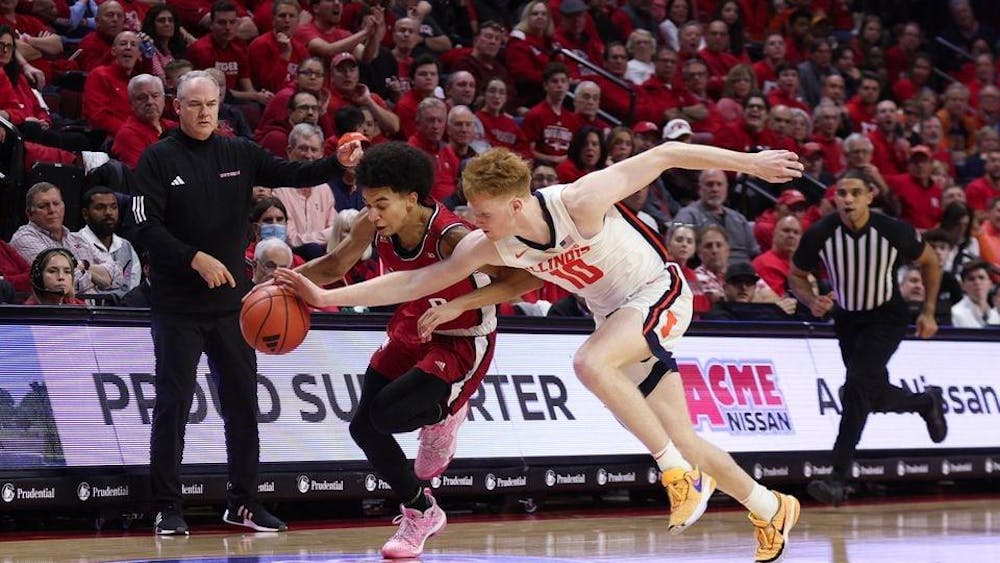In first grade, Donald Griffin Jr.’s classmates chased him with belts as a part of a game. The other children played as members of the KKK while Griffin, the only black student at his school, was their victim.
But times have changed. Griffin is the vice president of the Monroe County NAACP Executive Committee, member of the Indiana Democratic African American Coalition and a Bloomington native. Today he stands as Bloomington’s 2017 Martin Luther King, Jr. Legacy Award winner due to his liftetime contributions.
When Mayor John Hamilton announced the award at the city’s MLK Birthday Celebration on Jan. 16, a crowd of local leaders and activists stood to applaud him for his contributions.
“I was shocked and proud and humbled,” he said. “I’m still kind of in shock.”
However, as a black man, he said getting where he is today has not been easy.
In fact, Griffin’s race made it difficult for him to enter the real estate business. Despite these setbacks, Griffin was able to become the youngest realtor in Bloomington history before starting his own company.
Griffin attributes this success countless people have supported him along the way. These people, many of whom later received the Bloomington Living Legends Award he set up, inspired Griffin to lead.
“Too many people wait for others to lead when bad things happen,” he said. “They wait for a savior, but then there are other people in this world who take the challenge and lead.”
Today, Beverly Calendar-Anderson, fellow Monroe County NAACP Executive Committee member and friend of Griffin, said he has become the role model and inspiration.
“Don’s commitment to excellence in business and personal relationships is a model of what a successful African American man can be,” she said. “So just by his very being, he shows younger African American males what is possible.”
Griffin said he wants to start by being a proponent of individuality — his new civil rights issue. This individuality lies at his core because of his own struggle to become an individual. He said he often felt like an outcast within the larger community for being black while also being pushed aside by other African Americans who said he wasn’t black enough.
“I’m not white, so they don’t accept you. And then you go into the community that’s supposed to accept you and you’re not black enough,” he said. “Then you become a character where you feel like you have to act or talk or dress a certain way. You lose your individuality.”
Griffin said he now rejects such sentiments.
“There was no definition of how to act black,” he said. “You’re just black. It’s just who you are.”
But this struggle for individuality applies to all, regardless of race, Griffin said.
“Become an individual,” he said. “Create new things. Change the world. Life isn’t a coloring book. Don’t fill in the shapes. Draw your own book.”
All of these efforts, combined with social justice issues for the rights of women, minorities and the LGBT community, first start with collaboration, Griffin said.
Griffin said this collaboration is rooted in the days of Martin Luther King, Jr. when white citizens supported the NAACP from its grassroots. Likewise, abolitionists of all races and genders helped bring about the end of slavery.
“Today, we’re working in these silos, and we aren’t coming together,” he said. “If we want to get through this, we can’t just fight our own battles all on our own.”
He said this unity cannot be achieved until all minorities also come together as one.
“I think the powers that be are smart enough to intentionally separate us and pit us against each other so that we’re fighting over the same bread crumb,” Griffin said. “It distracts us from the real enemy, the real purpose.”
Calendar-Anderson said this desire for unity shows the vision Griffin has for the future of the city he loves.
“As a community member, he envisions what Bloomington can be and sets out to make it so,” she said. “Donald wants to be those shoulders for future generations and so his eyes are always on the future and how he can work to make his community better for those coming behind him.”
Griffin said this future involves a new struggle and a wake-up call. And it starts in our communities.
“We’ve been dormant for too long,” Griffin said. “We can no longer ignore what’s happening even if everything’s okay in our little world. This is our generation’s time to wake up and understand everything’s not okay.”






